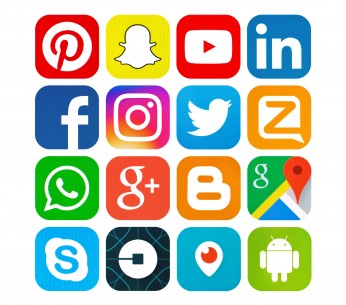Social media marketing is a form of internet marketing that relies on the process of gaining traffic or attention through social media platforms like Facebook, Instagram and Twitter. By utilizing these platforms to connect with potential customers, you can build your brand and increase sales.
Each platform has different resources and goals that can benefit your business in different ways. According to Statista, 70 percent of the U.S. population has at least one social media profile. By 2021, the number of worldwide social media users is expected to be roughly 3.1 billion people. So many consumers using social media every day creates a valuable opportunity for businesses who want to reach their audience through platforms they’re already spending time on. Users are active on social media platforms because these channels offer a fun and easy way to network, keep in touch with friends and family and stay connected with what’s going on in the world.
I’m going to touch on the three major social media marketing platforms that can help your business truly take advantage of all that the online marketing world has to offer.
Social Media Marketing With Facebook
Facebook takes the lead as the most widely used social media marketing platform by adults, meaning there is a never ending opportunity to expand your audience and drive traffic to your website.
Getting started on Facebook can seem overwhelming; if you’re ready to begin, check out these tips and tricks from Sprout Social to get the most out of the ever-powerful social media platform.
Read more: How To Use Social Media Marketing For Your Business







